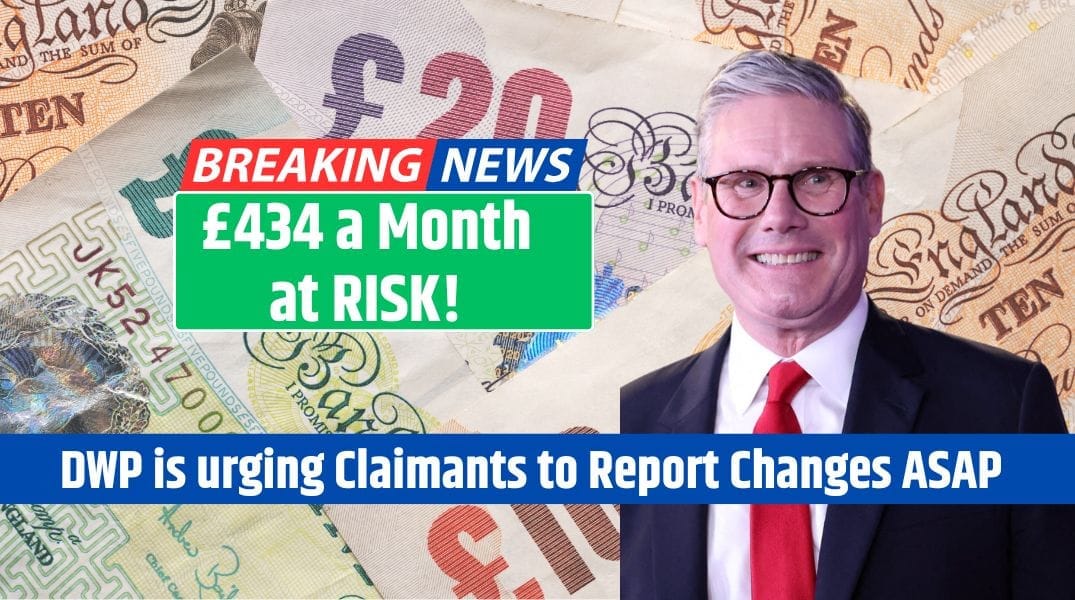The Department for Work and Pensions (DWP) has intensified its scrutiny of Personal Independence Payment (PIP) claims in anticipation of reforms expected under the Labour Party’s first budget.
These reforms aim to simplify the benefits system while ensuring the accuracy of PIP claims. As a result, thousands of PIP beneficiaries across the UK could see changes to their payments.
PIP Payments at Risk
Since 2016, the DWP has actively reassessed PIP claims to ensure payments reflect the needs of claimants:
- Total Claims Reviewed: 3.1 million
- West Midlands Claims Reviewed: Over 283,000
- Payments Stopped: 53,289
- Benefits Reduced: 22,951
- Maximum PIP Support: Up to £737 every four weeks (approximately £9,500 annually)
The increase in reviews is part of a routine process, but it has raised concerns among claimants who depend on PIP to manage additional costs associated with their health conditions.
Reasons for Changes in PIP Payments
Several factors may cause a claimant’s PIP payments to be stopped or reduced:
| Reasons for Payment Changes | Description |
|---|---|
| Failure to Return Review Forms | Not submitting the required forms on time can result in payment suspension. |
| End of Fixed-Term Award | Once a fixed-term award expires, claimants need to reapply to continue receiving PIP. |
| Medical Assessments | If the DWP determines through a reassessment that a condition has improved, payments may be adjusted or stopped. |
| Missed Assessments | Failing to attend a medical assessment could lead to a halt in payments. |
| Change in Circumstances | Changes in health or living conditions can impact eligibility. |
| Overpayment Recovery | Payments may be reduced to recover overpaid benefits. |
| Fraud Allegations | Suspected fraud can result in immediate payment suspension. |
| Changes in Immigration Status | If immigration status changes affect eligibility, PIP payments may be stopped. |
Steps to Take if Your PIP Is Stopped
If PIP payments are stopped or reduced, claimants have several options:
- Request a Mandatory Reconsideration: Ask the DWP to review their decision. It’s essential to act quickly, as claimants typically have one month from the decision date to request reconsideration.
- Appeal to an Independent Tribunal: If reconsideration is unsuccessful, claimants can appeal to an independent tribunal for a further review.
- Reapply for PIP: If a claim ends but the health condition persists, a fresh application may be required.
- Contact the PIP Helpline: If the review form was not returned on time, contacting the helpline could allow claimants to request an extension.
Addressing Review Backlogs and Delays
The DWP has faced significant delays in processing PIP claims, with some claimants waiting over a year for their reviews. This backlog places immense financial and emotional strain on those uncertain about their future eligibility.
To address this, the DWP has:
- Received additional funding to help manage the backlog.
- Acknowledged that it could take up to ten years to fully resolve the backlog.
- Encouraged claimants to stay proactive and check their claim status regularly.
Labour’s Proposed Reforms
Labour’s first budget is expected to introduce substantial changes to the PIP system, although specific details remain unclear. Speculated reforms include:
- Stricter Eligibility Criteria: More stringent conditions could be introduced, making it harder to qualify for PIP.
- Voucher-Based Support: Discussions have surfaced about replacing cash payments with vouchers for essential goods and services.
What Should Claimants Do Now?
With the possibility of significant changes ahead, PIP claimants should take steps to prepare:
- Stay Informed: Keep up with updates from the DWP and Labour about any impending changes to the PIP system.
- Seek Advice: Organizations such as Citizens Advice can offer valuable guidance when navigating PIP reviews and understanding the potential effects of Labour’s reforms.
- Prepare Documentation: Ensure that medical records and other relevant personal documents are up to date in case a reassessment is required.
These steps can help claimants remain informed and prepared for any changes that may affect their PIP eligibility and payments.
The DWP’s focus on increasing PIP reviews, combined with Labour’s anticipated reforms, signals a time of change for many beneficiaries. Staying proactive, informed, and seeking professional advice will help claimants protect their benefits and understand their rights.
FAQs:
What is the maximum amount of PIP I can receive?
The maximum PIP support is up to £737 every four weeks, or approximately £9,500 annually.
What happens if I don’t return my PIP review form?
Failing to return the form on time can result in your payments being stopped.
Can I appeal a decision to stop or reduce my PIP payments?
Yes, you can first request a mandatory reconsideration and, if necessary, appeal to an independent tribunal.
What should I do if I missed my medical assessment?
Contact the PIP helpline as soon as possible to reschedule or discuss your situation.











